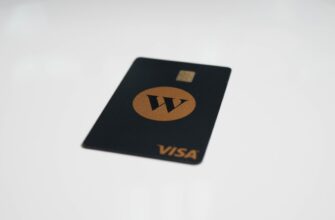“title”: “Secure Account Offline 2025 Guide: Protect Your Data in a Digital World”,
“content”: “In 2025, the importance of securing your online accounts has never been greater. With the rise of cyber threats, data breaches, and the increasing reliance on digital platforms, protecting your account offline has become a critical skill. This guide provides a comprehensive overview of how to secure your account offline in 2025, including practical steps, tools, and answers to common questions.nn### Why Offline Account Security Matters in 2025nnThe digital landscape in 2025 is more interconnected than ever. While online security measures are essential, many users still rely on offline methods to protect their accounts. This includes securing devices, managing passwords, and ensuring data integrity without constant internet access. Offline account security is particularly vital for users who work in environments with limited connectivity or who prioritize privacy.nn### Key Steps to Secure Your Account Offlinenn1. **Use Strong, Unique Passwords**
– Create complex passwords that include a mix of uppercase letters, lowercase letters, numbers, and special characters.
– Avoid reusing passwords across multiple accounts. Use a password manager to store and generate secure passwords.
– Consider using a password generator for high-security accounts.
2. **Enable Two-Factor Authentication (2FA)**
– Activate 2FA for critical accounts, even if they are accessed offline. This adds an extra layer of security by requiring a second verification method, such as a code sent to your phone.
– Use apps like Google Authenticator or Authy for offline 2FA.
3. **Secure Your Devices**
– Ensure your devices (laptops, phones, tablets) are protected with encryption and antivirus software.
– Regularly update operating systems and apps to patch vulnerabilities.
4. **Limit Access to Sensitive Information**
– Avoid storing sensitive data (e.g., financial records, personal documents) on devices that are not secured offline.
– Use secure storage solutions like encrypted USB drives or cloud services with strong access controls.
5. **Conduct Regular Audits**
– Review your account activity offline to detect unauthorized access. Check for suspicious logins or transactions.
– Use tools like password managers to track login history and account activity.
### Tools and Methods for Offline Account Securitynn1. **Password Managers**
– Tools like Bitwarden, 1Password, and Dashlane allow you to generate, store, and manage secure passwords offline. These tools encrypt your data and can be accessed without an internet connection.
2. **Encryption Software**
– Use encryption tools like VeraCrypt or GPG to secure files and data stored offline. This ensures that even if your device is compromised, your data remains protected.
3. **Secure Browsing Practices**
– Use offline browsers like Tor or Privacy Badger to browse the web without leaving a digital footprint. These tools help protect your account from online tracking and data leaks.
4. **Physical Security Measures**
– Secure your devices in locked cabinets or safe locations. Avoid leaving devices unattended in public spaces.
– Use biometric authentication (e.g., fingerprint or facial recognition) to access sensitive accounts offline.
5. **Offline Backup Solutions**
– Regularly back up your data to secure, offline storage solutions. This ensures you can recover your account information without relying on internet services.
### FAQ: Common Questions About Offline Account Securitynn**Q1: Why is offline account security important in 2025?**
A: In 2025, cyber threats are more sophisticated, and many users rely on offline methods to protect their accounts. Offline security ensures your data remains safe even when internet access is limited or unavailable.
**Q2: How can I secure my account without an internet connection?**
A: Use strong passwords, enable 2FA, and store sensitive information in encrypted devices. Avoid sharing devices or using unsecured networks.
**Q3: What are the best practices for offline account security?**
A: Follow these practices: use unique passwords, enable 2FA, secure devices with encryption, and conduct regular audits.
**Q4: Can I use cloud services for offline account security?**
A: Yes, but ensure the cloud service uses strong encryption and access controls. Avoid storing sensitive data in unsecured cloud accounts.
**Q5: What should I do if my account is compromised offline?**
A: Immediately change passwords, disable 2FA, and contact the service provider. Monitor your account for suspicious activity and consider freezing credit or accounts if necessary.
By following these steps and leveraging the right tools, you can effectively secure your account offline in 2025. Stay proactive in protecting your digital identity, even when you’re not connected to the internet. Remember, the goal is to balance convenience with security in an ever-evolving digital world.”
}








